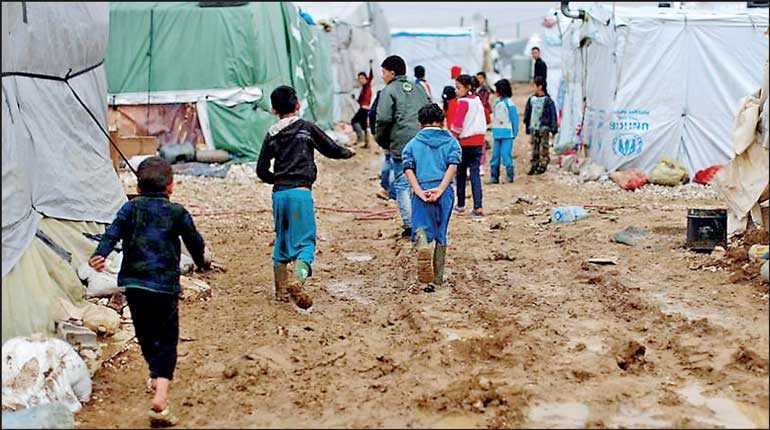Thursday Feb 19, 2026
Thursday Feb 19, 2026
Friday, 15 March 2019 00:00 - - {{hitsCtrl.values.hits}}

BRUSSELS (Reuters): The United Nations will seek billions of dollars in additional aid for Syria on Thursday, seeking to overcome fatigue among donors after eight years of civil war and divisions over how to deal with Syrian President Bashar al-Assad.
With 11.7 million people needing emergency aid in Syria, many of those children, the United Nations is seeking $3.3 billion for victims there and $5.5 billion for refugees in the region, a similar call to 2018.
“We don’t want the people of Syria to be forgotten at a time when the international community seems to care a little bit less,” said Federica Mogherini, foreign policy chief for the European Union, the world’s biggest aid donor, which is hosting the conference with the United Nations. “It’s not over yet.”Syria has also become the world’s largest refugee crisis, the United Nations says, with more than 5.6 million Syrians fleeing to Jordan, Lebanon, Iraq and Egypt.
UN High Commissioner for Refugees Filippo Grandi, who recently visited Syria, said around 70 percent of Syrian refugees live a “razor-edge” existence in poverty.Despite funding by the EU, Norway and some Gulf countries, last year 65 percent of the $3.4 billion sought for people inside Syria came through. A demand for $5.6 billion for the region’s refugee was 62 percent funded, the United Nations said.
Donors must contend with US President Donald Trump’s demand that allies carry more of the burden. His government last year failed to submit a pledge, although US funding commitments eventually came in, EU diplomats said.
US Special Representative for Syria Engagement James Jeffrey, who is expected at the Brussels conference, said in a statement that he would “reaffirm US support for humanitarian assistance to all Syrians”.
The conference also underscores Europe’s dilemma in its efforts to isolate Assad as the United States pulls back its troops and the Syrian leader emerges victorious from the conflict, backed by Russia and Iran, diplomats say.
The EU has repeatedly made longer-term reconstruction support conditional on a UN-led peace process to end a war that has killed hundreds of thousands of people.
But with the UN process stuck, Russia’s 2015 military intervention proving decisive for Assad, and Arab neighbours considering re-establishing diplomatic ties, European governments are divided over whether to rebuild.